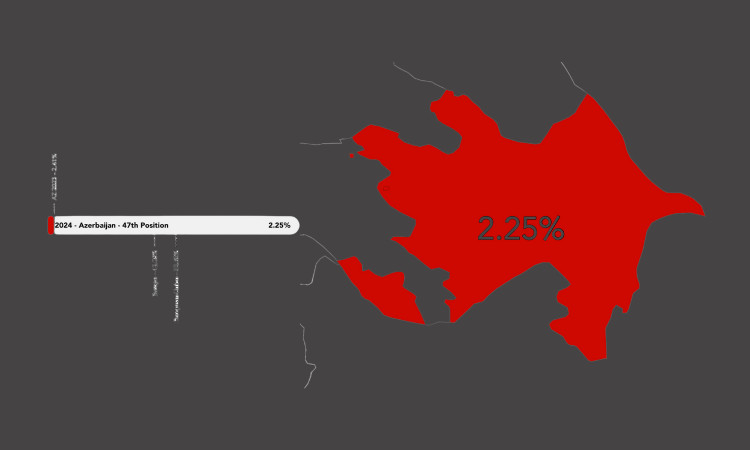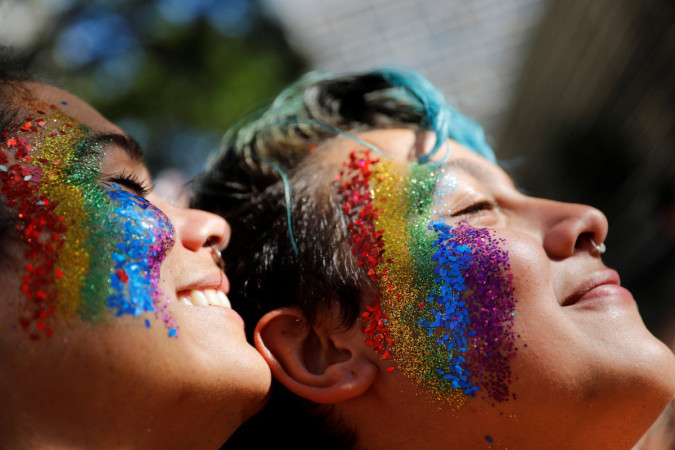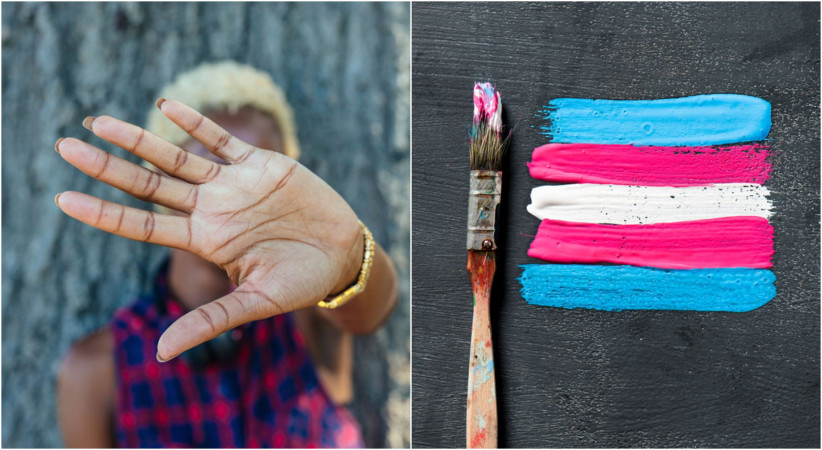Factors hindering solidarity in Azerbaijan’s queer community
Factors hindering solidarity in Azerbaijan’s queer community: Systemic violence, interpersonal challenges, and migration
20/Aug/24
5411
Factors hindering solidarity in Azerbaijan’s queer community: Systemic violence, interpersonal challenges, and migration
Author: Nej Goolé
Azerbaijan's LGBTQI+ community faces diverse challenges as it tries to build solidarity, form meaningful connections, and create safe spaces for expression and activism. These challenges stem from systemic violence, societal oppression, and the significant difficulties in establishing trust and unity among community members. This article explores the main issues that slow down community building, focuses on how systemic violence affects interpersonal relationships, and examines the reasons behind the growing trend of queer migration from Azerbaijan.
Barriers to Community Building
One of the primary obstacles to community building in Azerbaijan's queer community is the severe lack of safe spaces. Organising events or gatherings for the LGBTQI+ community is faced with danger due to the risk of persecution, which severely restricts open communication and outreach. The necessity to maintain discretion means that invitations to such events are often circulated through trusted networks rather than public calls, further limiting the reach and inclusivity of these gatherings. The constant fear of being targeted creates an environment of anxiety, both for organisers and participants, slowing efforts to foster a cohesive community.
Hidden censorship compounds these difficulties. While not direct, a common atmosphere of fear prevents open expression and interaction. Financial constraints also play a significant role, both at the organisational and individual levels. Many LGBTQI+ organizations need help to secure the necessary resources to host events or launch initiatives, while community members, burdened by the demands of full-time work and studies, often need more time or energy to engage in activism or community-building efforts.
Apathy within the community is another significant challenge. Some people are disengaged, showing little interest in activism or community work until they personally face discrimination or hardship. Others adopt an apolitical stance, either content with their status quo or concerned that activism might exacerbate their difficulties. This lack of engagement is further exacerbated by internal conflicts within the community, where envy and competition over limited resources lead to fragmentation and disagreements, undermining collective efforts.
The systemic issues that the LGBTQI+ community in Azerbaijan faces are not the result of individual shortcomings but rather the product of a societal structure that does not support their empowerment or unity. The scarcity of resources and the heavy atmosphere of fear and censorship make it significantly difficult to politicise and mobilise the community effectively.
Interpersonal Challenges and Systemic Violence
Systemic violence in Azerbaijan extends beyond public and institutional persecution; it infiltrates the personal lives and relationships of queer people, often with devastating effects. Many community members report feeling suffocated by the constant proximity of their activism and personal lives, as their identity and community work consume their existence, leaving little room for personal space or self-care.
The societal intrusion into the personal lives of queer people further worsens this issue. From the clothes they wear to the people they associate with, societal scrutiny is relentless, leading to strained relationships and isolation. Outing oneself can result in the loss of friendships or the deterioration of social ties, as many people, even those who initially appear accepting, may distance themselves or even become hostile.
Financial difficulties also strain personal relationships. The need to work multiple jobs to survive leaves little time or energy for maintaining connections with others. Additionally, forming and sustaining romantic relationships is particularly challenging in Azerbaijan's hostile environment. Many queer people prefer to keep their relationships hidden, meeting in private rather than in public, which can lead to relationships ending before they even have a chance to develop. The fear of exposure, particularly through leaks of intimate photos or other personal information, adds another layer of anxiety, making genuine connection and trust even more challenging.
Friendships within the queer community are often forged through shared trauma, leading to relationships that revolve around discussing personal struggles and challenges. While this can create a sense of solidarity, it can also become exhausting and toxic, as the constant focus on negative experiences can wash away the positive aspects of these relationships.
The widespread fear of exposure and the threat of systemic violence significantly impact the quality of interpersonal relationships within the queer community. The pressure to keep relationships secret, the constant observation required to avoid detection, and the trauma of systemic oppression all contribute to the erosion of trust and solidarity among community members.
The Push Factors Behind Queer Migration
Given the systemic violence, societal oppression, and personal challenges faced by Azerbaijan's queer community, it is no surprise that many are choosing to migrate in search of safer environments. The ability to express affection publicly, the promise of better job opportunities, and the prospect of financial stability are the main reasons for many to leave Azerbaijan. Abroad, they can enjoy basic freedoms that are denied to them at home, such as holding hands in public or sharing their lives openly on social media.
Azerbaijan's constitution, which does not recognise the rights of queer people, further alienates the community. Living in a country that denies their existence and rights can have severe psychological impacts, leading many to seek a better mental state in countries with more progressive attitudes and policies. The desire to escape the pressures of family and the constant fear of persecution also drives many to leave.
For some, the choice to stay and continue the fight for their rights is a matter of principle, a refusal to take the easier path. However, the risk of facing a crackdown, the constant threat of detention, and the instrumentalisation of LGBTQI+s in political and societal conflicts make this choice increasingly difficult. The fear of imprisonment and the lack of protection for their rights push many to seek refuge elsewhere.
In conclusion, the challenges faced by Azerbaijan's queer community are multilayered and deeply rooted in systemic violence and societal oppression. These factors not only challenge community building and infiltrate interpersonal relationships but also drive a significant portion of the community to seek safety and freedom abroad. The interconnectedness of these challenges highlights the urgent need for change, both within Azerbaijan and in the broader context of global LGBTQI+ rights.
Powered by Froala Editor



